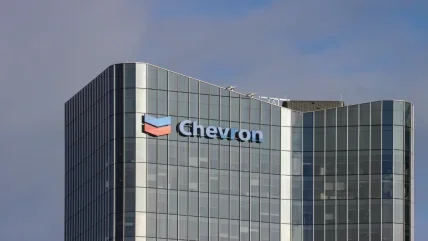
Chevron U.S.A., a subsidiary of Chevron, has completed the sale of a 70% stake in its East Texas gas assets located in the Haynesville Play in a deal worth $525m.
The buyer, an affiliate of TG Natural Resources (TGNR), is indirectly owned by Tokyo Gas and Castleton Commodities International.
The consideration includes $75m in cash and a $450m capital carry earmarked for Haynesville development.
Post-transaction, Chevron will maintain a 30% non-operated working interest and an overriding royalty interest in these assets. TGNR’s ownership structure includes approximately 93% held by Tokyo Gas and 7% by Castleton Commodities.
This transaction aligns with Chevron’s plans to divest between $10bn and $15bn in assets by 2028. It aims to optimise the company’s global energy portfolio and accelerate development of non-core assets using a capital-efficient model.
The deal is expected to generate over $1.2bn for Chevron at current Henry Hub prices, benefiting from the capital carry, retained working interest, and overriding royalty interest.
Through this acquisition, TGNR enhances its existing Haynesville inventory with more than 250 gross locations, based on four wells per section. This addition could extend the inventory life to over 20 years at the present development pace.
The acquired Haynesville acreage remains largely undrilled and is secured by shallower production, facilitating reduced parent-child well effects.
TGNR CEO Craig Jarchow said: “We are excited to partner with a world-class company like Chevron on this transaction. There is considerable operational overlap between the Chevron acreage and the legacy TGNR acreage, which will allow TGNR to realise synergies of over $170m during the development of the asset.”
Truist Securities acted as the financial adviser for TGNR, while Kirkland & Ellis provided legal advisory services.
Earlier this year, reports emerged that Chevron would cut its global workforce by 15% to 20% by the end of 2026 as part of a wider strategy to streamline operations and reduce costs. The decision comes amid operational challenges, surging project expenses, and a pending $53bn acquisition of Hess.






